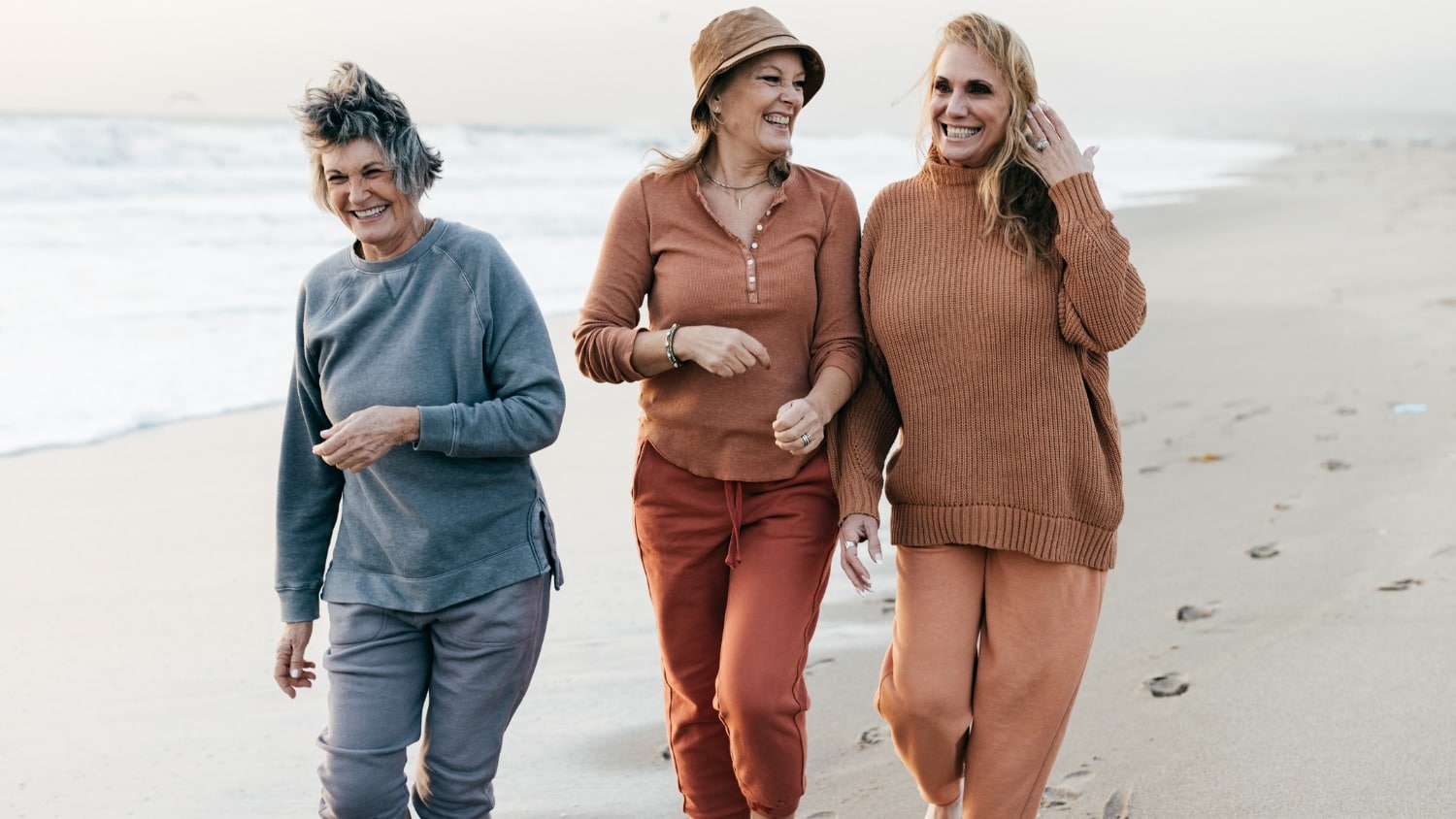
This blog is about my experiences and practices because this is what I know. I feel happy, positive and vibrant at 89. Do you feel the same at your age?
There are 4 things that contribute to optimum health as we age. These are diet (40%), physical activity (30%), sleep (10%) and other lifestyle choices (20%).
‘Other lifestyle choices’ refer to drugs (e.g., excessive alcohol), smoking, vaping, etc. Moderate alcohol is OK and even beneficial, according to some sources. I have alcohol every day, and I have found it to be beneficial for me.
Health gives us vibrancy of life, especially mental health and happiness which is ultimately what we all want.
Your genes contribute to around 7% of your health. Lifestyle does the rest.
The video below is relevant, particularly concerning genes.
Nutrition
You don’t need to be finicky about diet. Eat plenty of a variety of fruit and vegetables. A regular simple blood test will tell you if any health factors are outside limits. Your GP will alert you and recommend how to fix problems.
Don’t eat to excess. Get up from the table feeling you could eat a little more! Eat more protein for bone and muscle strength. You will be less likely to fall.
Exercise
As we age, our bones and muscles lose strength, our flexibility decreases and many of us develop heart problems. Most importantly, ensure the major scourge of old age, your heart, is strong.
The following is my gym work, every 2nd day. You must start slowly and build up to a fitness level over time. Experiment with comfortable equipment settings. Get advice from a professional trainer if you are doubtful. I didn’t and just ‘listened to my body’.
- HIIT (High Intensity Interval Training). I do this by rapidly running on an elliptical trainer 3 times until I am heavily puffing at the end of each run. It takes less time. Do a similar exercise on a gym bike.
- Include a variety of weights for bone strength.
- Consult a physio to advise flexibility exercises or just ask Bard!
That’s about 3.5 hours or less out of your week! Have fun too. Play pickleball or golf. You will meet great people. If the above is too much, try walking to start. It is a good and refreshing exercise.
Arthritis
Most of us develop Arthritis as we age and this is why flexibility exercises are important. Last year I developed a painful right hip, and my physiotherapist recommended a series of exercises to loosen my hip after X-Rays showed ‘Severe Arthrosis’ in both hips.
I was skeptical but I now do these every day. The pain has gone and freedom returned! Physical activity allows blood to flow to the cartilage keeping it healthy, so I suggest you follow your physiotherapist’s advice and just do the recommended exercises.
Happiness
Exercise will produce endorphins that flow through your brain and make you feel you can ‘take on the world’. I am fortunate that my family, children and grandchildren are very dear, close and loving. However, this may be out of your control.
Friends are important so make a big effort to maintain contact, meet them for a coffee and join groups to meet new people. I have written a separate blog on Happiness.
Sleep
Some people believe they don’t need much sleep. This is rare, and you should ensure you sleep for between 7 and 9 hours, as noted in an excellent book by Matthew Walker of Harvard University.
I practise mindfulness if I lie awake. It works for me by relaxing the mind and body. It requires persistence and practice.
Advantages of Good Health
Mental and physical health are essential for a happy life. As noted above, better health is available to anyone with some motivation, a sensible lifestyle, etc. The rewards are enormous.
I sometimes experience euphoria just walking to meet a friend for coffee, because the endorphins are flowing, and I feel great. Try standing up straight, with head and shoulders back. It is so easy to put off exercise, eat too many sweets, etc., but the joy of discipline and positivism is more rewarding. You can start today. Just do it!
Optimism
Optimists tend to live 10-15% longer than pessimists. Don’t fret about issues you can’t change.
- A study of 69,744 women by the University of California, San Francisco, found that the most optimistic women lived an average of 14.9% longer than their pessimistic peers.
- A study of 1429 men by the University of Pittsburgh, found that the most optimistic men lived an average of 11.2% longer than their pessimistic peers.
- A study of 839 medical patients by the Mayo Clinic, found that those with a more pessimistic outlook were 19% more likely to die over a 30-year period.
- Optimists are more likely to take care of their health, both physically and mentally and are also less likely to experience stress. Optimists are more likely to have strong social support networks, which can contribute to longevity.
Discipline
Turning your life around toward mental and physical health is not easy but with practice, you create your own rules, and the satisfaction comes from keeping them.
Let’s Have a Conversation:
How do you feel at your age? Which of the four areas of health do you need to improve? Which ones are you working on?
